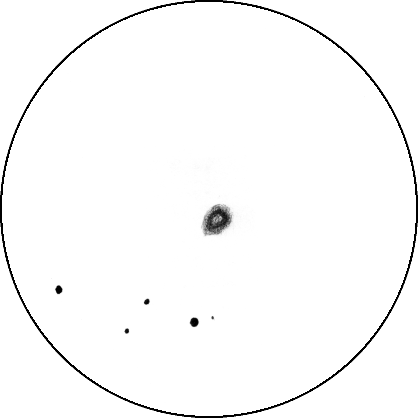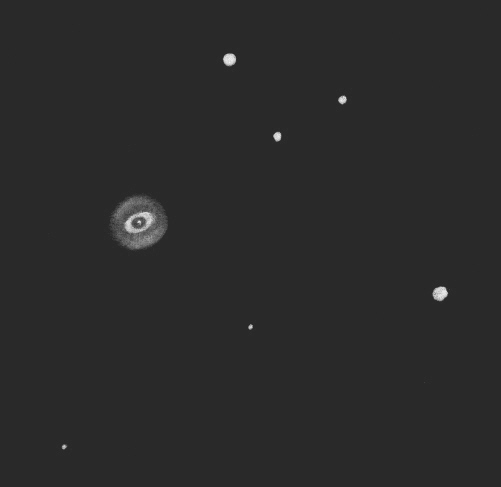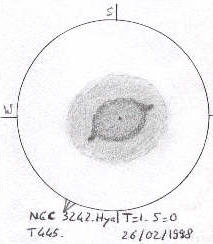
Your skill: advanced (many years) Category: planetary nebula Constellation: HYA Object data: Vmag=7.7; Bmag=8.6; 40"x35"; type IIIb+IV; central star of Vmag=11.4; discovered by W. Herschel in 1785; ELCAT: [OIII,496+501nm] = 17 x [Hbeta, 486nm]. RA/DE: 10h24.80m, -18°38.0' (2000.0) Date and UT of observation: 16 February 1994, early evening Location & latitude: La Clapiere Obs. (France, latN44 40 00, longE06 27 36) Site classification: rural, alt.1650m (5500ft) Limiting magnitude (visual in UMi): 6.2 Transparency (1 to 5 - best to worst): 1 Seeing (1 to 5 - best to worst): 3 Moon up (phase?): no Instrument: Coulter 445mm/17.5" F/4.5 Magnification: 145-312x Filters used: OIII
Description: at 145x, bright PN, medium sized (about 70"x49"
on drawing), oval in a NW-SE axis;
double-shell clearly seen, even without OIII filter;
central part is annular but the ring is pinched on the SE side and has
a brighter surface on the NW side; the inner ring is only 45"x35"; no central
star visible.

